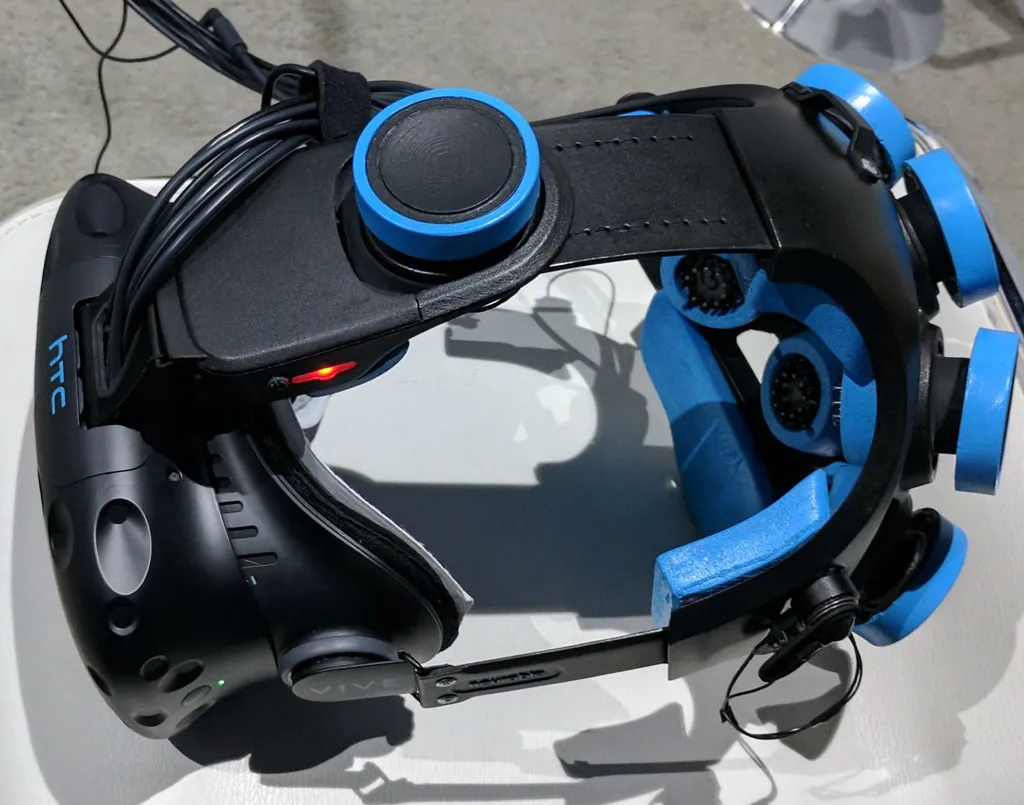A talk by Valve’s Mike Ambinder at GDC on March 22 will offer an overview of brain-computer interfaces.
If you are attending GDC and staying through Friday, the talk looks like it’ll be a worthwhile one. The talk is titled “Brain-Computer Interfaces: One Possible Future for How We Play” and happens at 10 am Pacific in Room 2010, West Hall. While the talk isn’t specifically about VR, we’ve also got a list of six GDC talks focused on VR/AR you should check out.
We’ll be curious to see what sort of research will be talked about by Ambinder, an experimental psychologist. The featured image above is a Vive headset modified by Neurable that was said to read additional signals from the brain. Combined with eye-tracking and other indicators, future VR headsets could be improved with research into brain-computer interfaces.
Videos from Game Developers Conference talks are usually available some time after the event. Organizers don’t allow audience livestreams but we’ll plan to attend and live tweet interesting pieces of information.
Here’s the official description of Ambinder’s talk:
While a speculative technology at the present time, advances in Brain-Computer Interface (BCI) research are beginning to shed light on how players may interact with games in the future. While current interaction patterns are restricted to interpretations of mouse, keyboard, gamepad, and gestural controls, future generations of interfaces may include the ability to interpret neurological signals in ways that promise quicker and more sensitive actions, much wider arrays of possible inputs, real-time adaptation of game state to a player’s internal state, and qualitatively different kinds of gameplay experiences. This talk covers both the near-term and long-term outlook of BCI research for the game industry but with an emphasis on how technologies stemming from this research can benefit developers in the present day.
Takeaway
Attendees should leave the talk with an understanding of the pros and cons of various lines of BCI research as well as an appreciation of the potential ways this work could change the way players interact with games in the future.
Intended Audience
This talk is geared towards anyone with an interest in interface or interaction design or who is curious about how game design may evolve as a consequence of access to physiological signals.






























